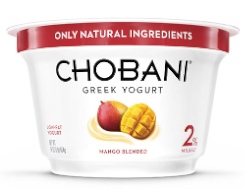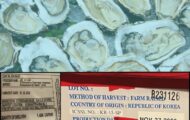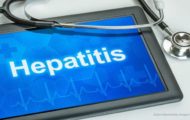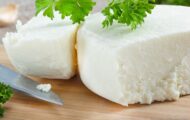Research published in the peer-reviewed journal MBio has found that the fungus that contaminated Chobani yogurt and was the trigger for a recall last fall was potentially dangerous. At that time, a researcher at Cornell University said that the mold, Mucor circinelloides, “should not pose a health risk to most consumers. Very rarely, it can act as an opportunistic pathogen, but not through food and usually only for people with compromised immune systems through inhalation.”
 In the study, researchers at Duke University isolated M. circinelloides from the yogurt and cultured it. The isolate was obtained from a container purchased by a couple in Texas who developed nausea, diarrhea, and vomiting after consuming the product.
In the study, researchers at Duke University isolated M. circinelloides from the yogurt and cultured it. The isolate was obtained from a container purchased by a couple in Texas who developed nausea, diarrhea, and vomiting after consuming the product.
Researchers injected the isolate into mice. Some of them got sick and a few mice died. The fungal spores did survive passage through the mice intestinal tract.
The fungus belongs to the species M. circinelloides f. circinelloides, which is “often associated with human infections,” according to the article. That isolate was virulent in murine (mice) and insect (wax moth larva) host models. The scientists concluded that “while information disseminated in the popular press would suggest this fungal contaminant poses little or no risk to consumers, our results show instead that it is capable of causing significant infections in animals.”
Investigators are unable to tie the fungus in the yogurt to the illnesses. It could be that toxins produced by the mold caused the illnesses, but no one knows for sure.
In September 2013, more than 200 consumers complained of foodborne illness symptoms after eating the yogurt that included vomiting, diarrhea, and nausea. Since the foodborne illness impact of fungi is underestimated, the study calls into question the statement that it was harmless.The scientists also say that fungi should be studied more as a cause of foodborne illness and that manufacturers should take more care in reducing fungal pathogens in foods and medications.
Chobani released a statement about this study criticizing the method and conclusions: “Chobani conducted an aggressive, statistically significant series of tests of the products voluntarily recalled in September 2013 with third party experts confirming the absence of foodborne pathogens. Chobani stands by these findings, which are consistent with regulatory agency findings and the FDA’s Class II classification of the recall on October 30, 2013. To our knowledge, there is no evidence, including the assertions presented in this publication, that the strain in the recalled products causes illness in consumers when ingested.”




